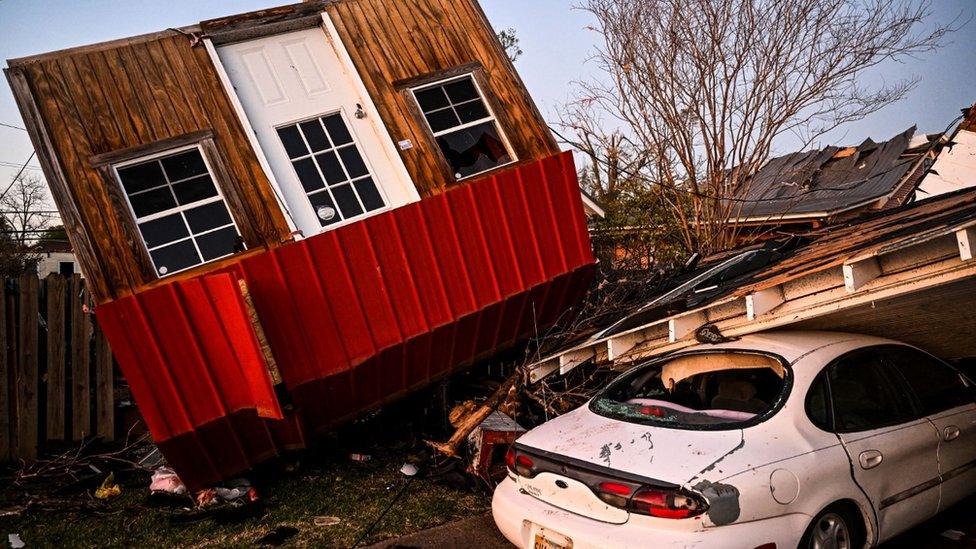Little Rock: Emergency declared after 'devastating' tornado
- Published
Watch: Weather presenter spots tornado live on air
At least 24 injured people have been taken to hospital after a "devastating" tornado hit Little Rock, Arkansas, according to the city's mayor.
The twister churned through the state's capital city on Friday, flipping cars, smashing roofs and toppling trees.
Several blocks have been heavily damaged, according to aerial footage posted by the Weather Channel.
Nearly 90 million people in 15 US states are under threat from an "explosive" storm system.
A state of emergency has also been declared in Missouri and two tornados were reported in Iowa.
Golf ball-sized hail fell in Illinois, damaging car windows.
Arkansas Governor Sarah Huckabee Sanders declared a state of emergency and deployed the National Guard after what she described as "significant damage" in central Arkansas.
Watch: Little Rock tornado caught on camera
Little Rock Mayor Frank Scott Jr tweeted that the tornado in that city was "devastating".
In a tweet on Friday evening he said that no deaths had yet been reported, but "property damage is extensive".
The University of Arkansas for Medical Sciences Medical Center in Little Rock said it was expecting at least 15-20 patients.
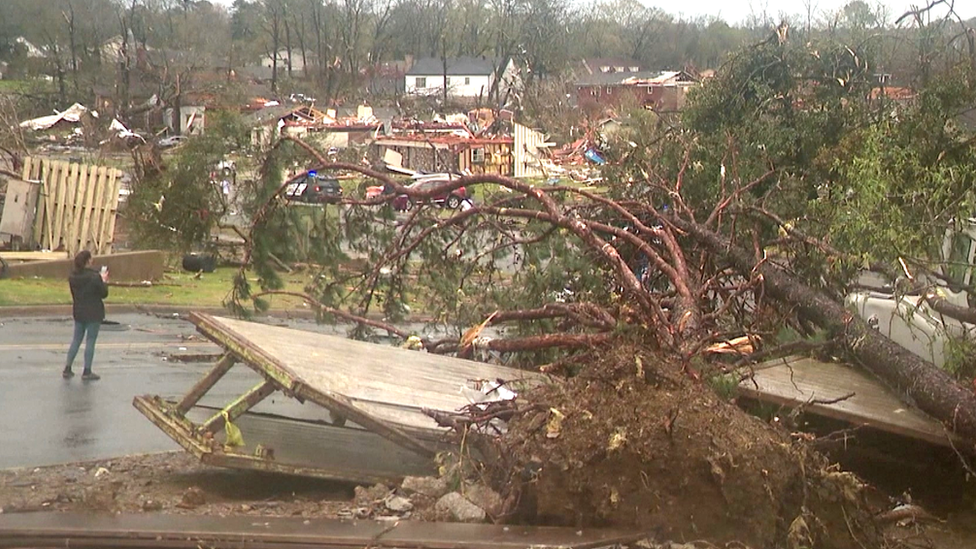
Tornado damage in Arkansas
Baptist Health Medical Center, the state's biggest hospital, said it had five patients in a critical condition.
It comes just one week after a rare, long-track twister killed 26 people in Mississippi. President Joe Biden visited the state on Friday to pay condolences and promise federal aid.
High risk severe thunderstorm warnings were in place on Friday for parts of Arkansas, Illinois, Iowa, Missouri and Tennessee, according to the National Oceanic and Atmospheric Administration's Storm Prediction Center.
The agency warned in a bulletin that some of the projected tornados could track across the ground for long distances.
Bill Bunting, the operations chief for the Storm Prediction Center, told the BBC the last time there were two separate such high risk warnings simultaneously was in April 2012.
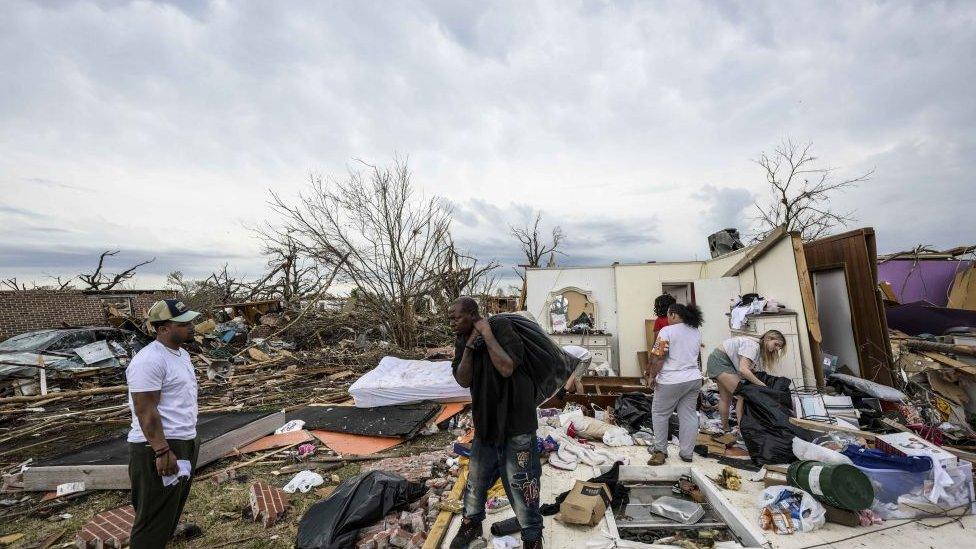
Last week's tornado in Mississippi damaged more than 2,000 homes in the town of Rolling Fork
The Mississippi tornado last week travelled 59 miles (94km) and lasted about an hour and 10 minutes - an unusually long period of time for a storm to sustain itself. It damaged about 2,000 homes, officials said.
Over 79,000 customers in Arkansas were without electricity, according to Poweroutages.us. Over 28,000 lost power in Oklahoma, where high winds were said to have downed power lines, sparking grass fires. Outages were also reported in Missouri, Kansas and Texas.
Police say the two tornados in Iowa touched down in a field, causing no major damage or injuries, according to the Associated Press.
It is unclear if the severity of the storm was fuelled by climate change, and the link between tornadoes and warming weather is complex.
The world has already warmed by about 1.2C since the industrial era began and temperatures will keep rising unless governments around the world make steep cuts to emissions, says the United Nations' climate panel.
- Published31 March 2023
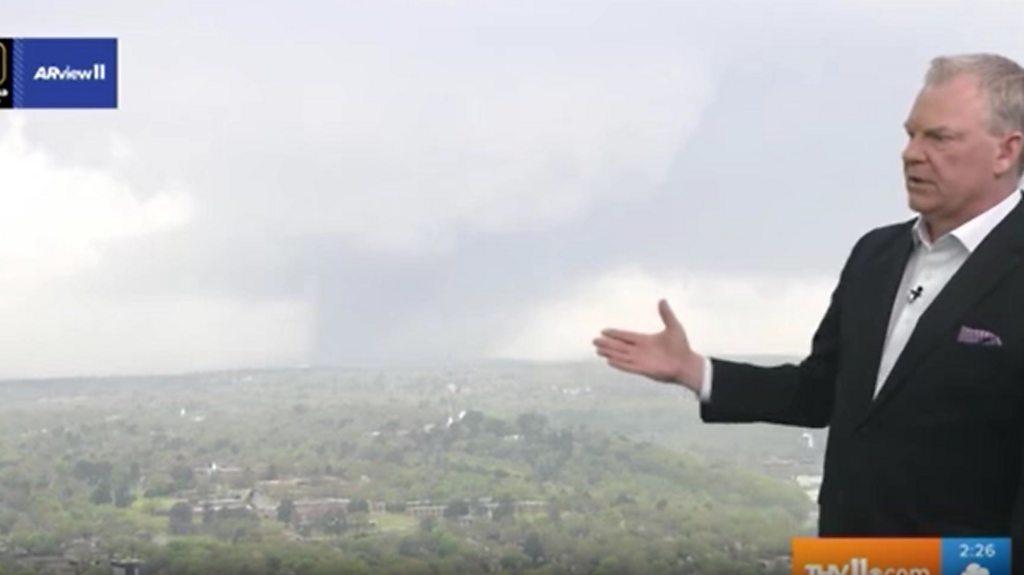
- Published26 March 2023
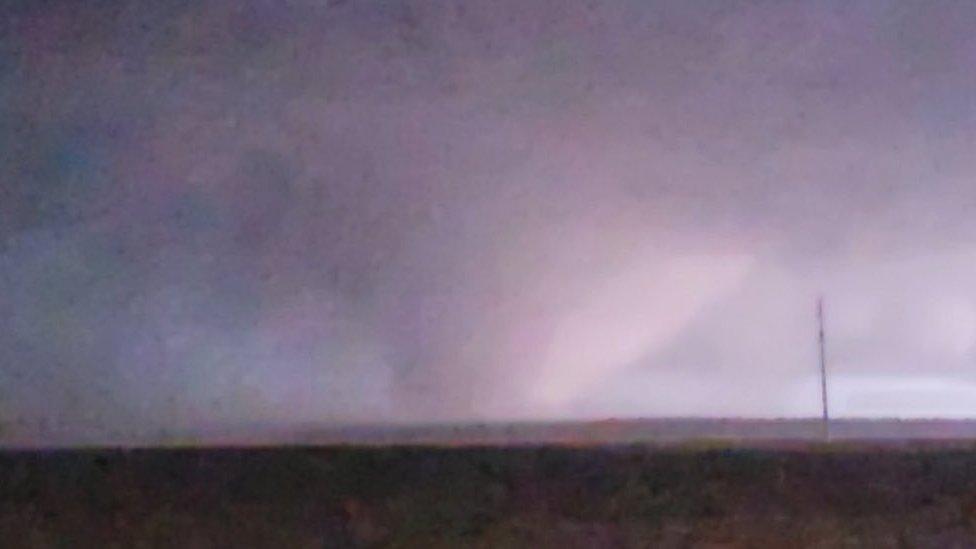
- Published25 March 2023
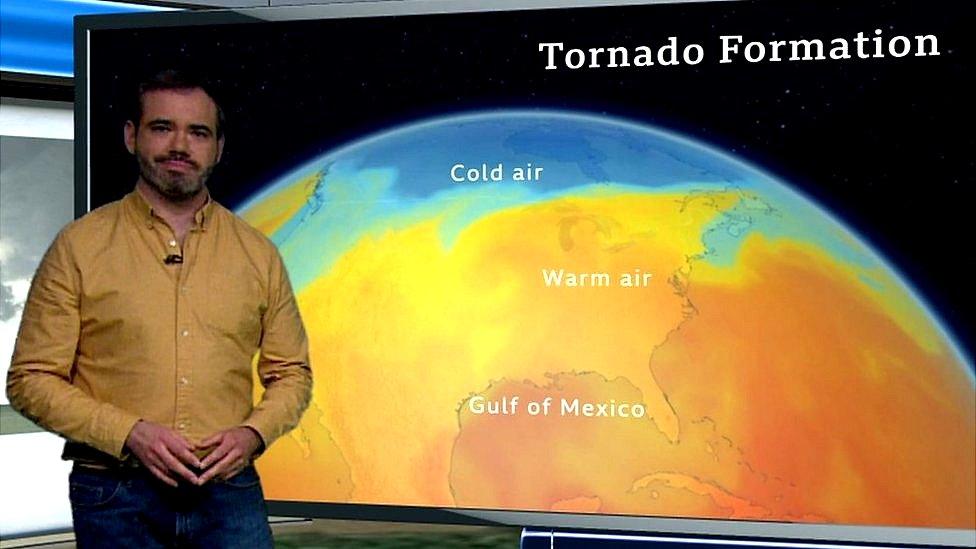
- Published27 March 2023
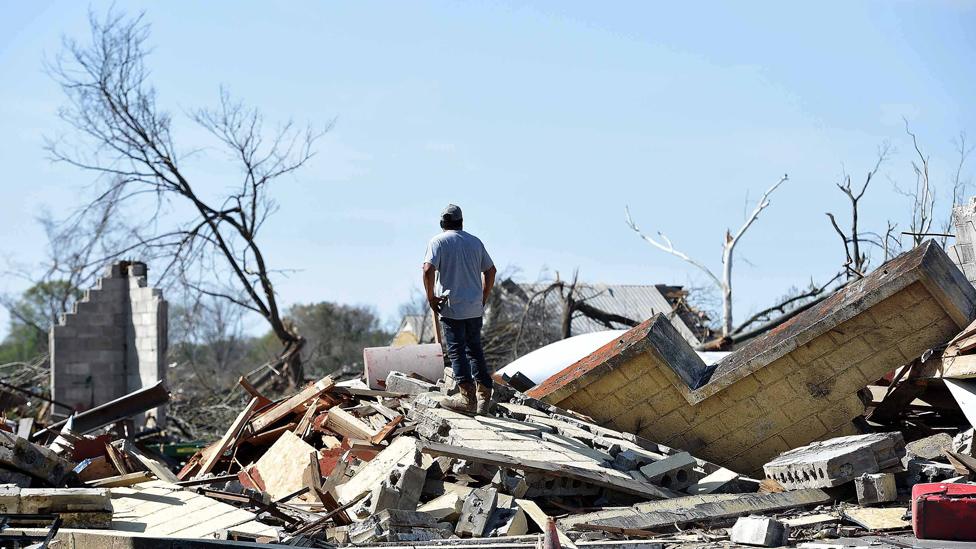
- Published26 March 2023
